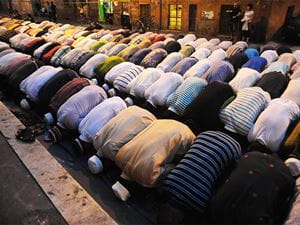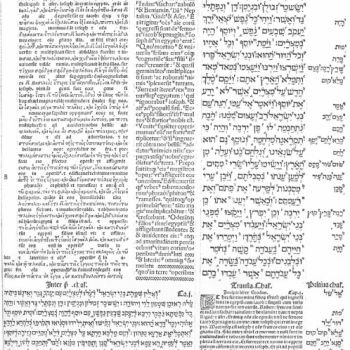
Praying five times a day is considered one of the five pillars of Islam. The daily prayers are an extremely important part of a devout Muslim’s life. The specific requirement of five prayers a day is not mentioned in the Quran, though daily prayer is a frequently attributed aspect of the life of the Prophet Muhammed and his companions. Other religious texts also discuss the daily prayer requirements. For example, there are many stories and other events recorded in the hadiths, which are the recorded sayings of the Prophet Muhammed and his companions, which mention various amounts of daily prayers. One story is told that the Prophet Mohammed initially told his followers to pray fifty times a day, but the Prophet Moses told him this was too much, and after an extended back and forth, the number was reduced to five. This is one of the sources for why Muslims pray five times a day, although many scholars believe that the decision the pray five times a day developed and emerged during the life of Muhammed himself. After his death, it is believed that more reasons for this practice were developed, but that they post-dated the emergence of the practice itself. Praying frequently was not uncommon in the time that Islam was founded, and the idea of praying five times a day would have been pious, but not totally out of sync with local culture.
While many Muslims engage in spontaneous and vernacular prayer when needed, this is separate from the proscribed prayers five times a day. Each of these prayers is recited at a specific time, using a particular liturgy and facing the direction of the city of Mecca. Prayer in Islam is not just about devotional words, but are prayed with the body as well. There are specific movements that accompany the prayers. The five daily prayers occur throughout the day at dawn, noon, mid-afternoon, sunset, and in the evening. The prayers vary in length, and some are very brief. Many Muslims use a prayer mat for their prayers, and there are specific rituals of bowing, kneeling, and prostrating that accompany the prayers. In Islam, the five daily prayers can be said almost anywhere, and do not require community, though it is common for men to go to the mosque on Friday for the afternoon prayer, which often includes a sermon. Both men and women are obligated in daily prayer, and are expected to wash their face, hands, arm, and feet in ritual preparation before they pray.
For many Muslims, the prayers are a way to keep their days focused around their devotion to God. The short, frequent prayers ensure that they will stop periodically and be reminded of higher things as they go about their daily tasks. The physical nature of Muslim prayer is also often an important part of the experience, as it reminds Muslims that they worship God with both their minds and their bodies.
3/23/2021 6:32:40 PM









